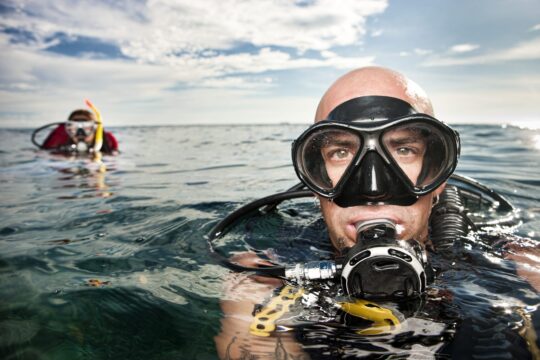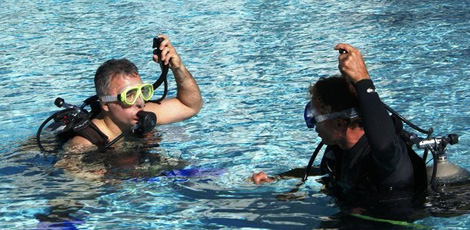Sea Turtle

Sea Turtles are ancient creatures with a family history going back 150 million years to the Late Jurassic period. The seven existing species of Sea Turtles are the Flatback Sea Turtle, Green Sea Turtle, Hawksbill Sea Turtle, Kemp’s Ridley Sea Turtle, Leatherback Sea Turtle, Loggerhead Sea Turtle, and Olive Ridley Sea Turtle. Of these species, the Green, Hawksbill, and Loggerhead are the most commonly seen when snorkeling and scuba diving in the Florida Keys. Like other Sea Turtles, these three species migrate long distances to mate and nest. They also seem to like staying near coral reef areas and sea grass beds. The Green Sea Turtle feeds only on sea grass when mature while the Hawksbill and Loggerhead eat jellyfish, sponges, molluscs, and crustaceans. The Loggerhead is the most numerous species worldwide, but all Sea Turtles are endangered. Loggerhead Turtles can be recognized by their reddish-brown carapaces, yellow underbellies, and strong scissors-like beak. Many Sea Turtles have coatings of algae and barnacles on their shells that help to camouflage them as they lie among the rocks and corals.








